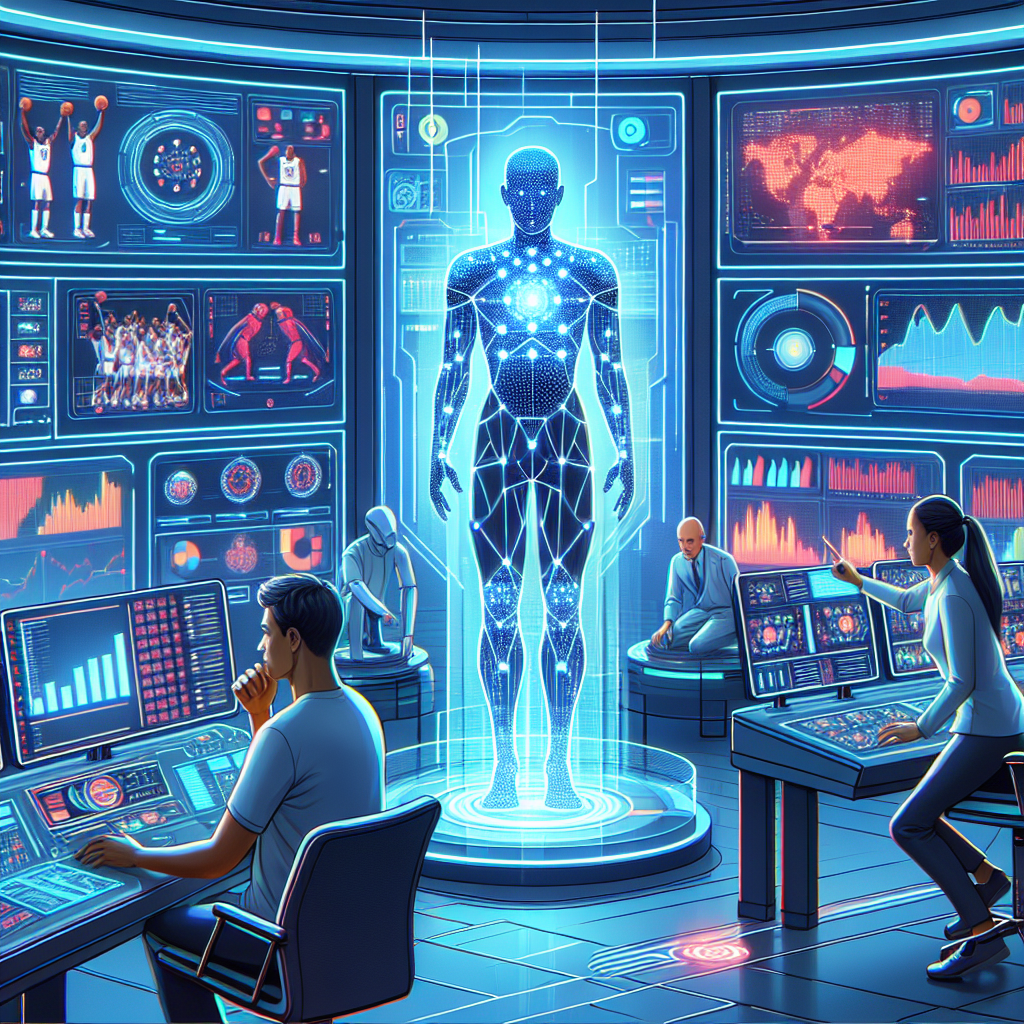“`html
Understanding AI in Sports Analytics
Welcome to the fascinating world of sports analytics powered by Artificial Intelligence (AI)! If you’re curious about how AI is transforming the sports industry, you’re in the right place. Let’s explore some common questions people have about this exciting intersection of technology and athletics.
What is AI’s role in sports analytics?
AI is revolutionizing sports analytics by providing tools that process data at speeds and accuracies far beyond human capabilities. It helps teams and athletes gain insights into performances, strategies, and even injury prevention. Here’s a quick look at AI’s role:
- Performance Analysis: By analyzing video footage, AI can identify patterns and provide feedback on improving performance.
- Strategy Development: Coaches use AI to understand opponents’ strategies, helping them to plan more effectively.
- Health Monitoring: AI can predict injuries by analyzing player movements and load metrics, preempting potential problems.
How does AI enhance fan engagement?
AI isn’t just for athletes and coaches; it also enhances fan experience by:
- Personalized Content: AI algorithms recommend content tailored to individual preferences, keeping fans engaged with the sports they love.
- Predictive Analytics: Fans can use AI tools to make predictions about game outcomes, adding an interactive layer to watching sports.
Are there any real-world examples of AI in sports?
Absolutely! Numerous sports and teams are leveraging AI to gain a competitive edge:
- Baseball: Major League Baseball teams use AI to analyze vast amounts of game data to improve player performances and strategies.
- Soccer: Many top clubs have adopted AI technologies to scout talent and analyze match statistics.
- Basketball: The NBA employs AI to monitor player activity and optimize game strategies.
Is AI replacing coaches and analysts?
While AI is a powerful tool, it is not a replacement for human judgment and experience. Instead, it serves as an augmentation, providing an extra layer of data-driven insights. Coaches and analysts still interpret these insights and make strategic decisions based on their expertise and knowledge of the game.
What does the future hold for AI in sports?
As AI technology evolves, we can expect even more sophisticated applications in sports. Potential future developments include:
- Advanced Wearables: Devices that provide real-time analytics and feedback during gameplay, helping athletes fine-tune their performances instantly.
- Virtual Reality Training: AI could be combined with VR to create immersive training environments, simulating real-world game scenarios.
The fusion of AI and sports is just getting started, and the possibilities are endless.
So next time you watch a game, remember, there’s a high chance AI is playing a key role behind the scenes!
“`
